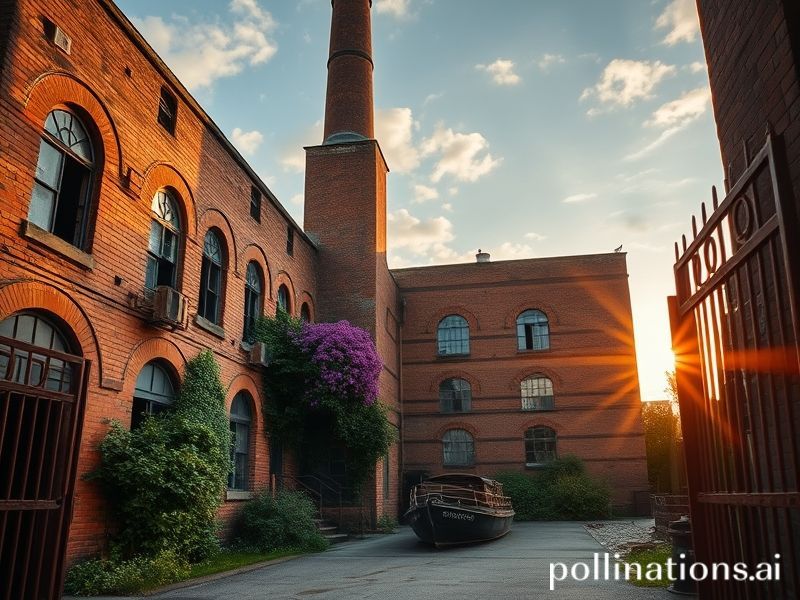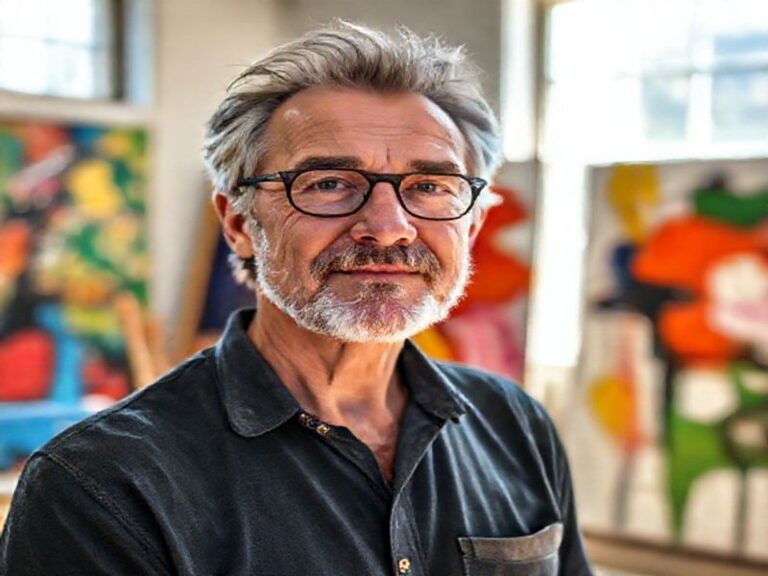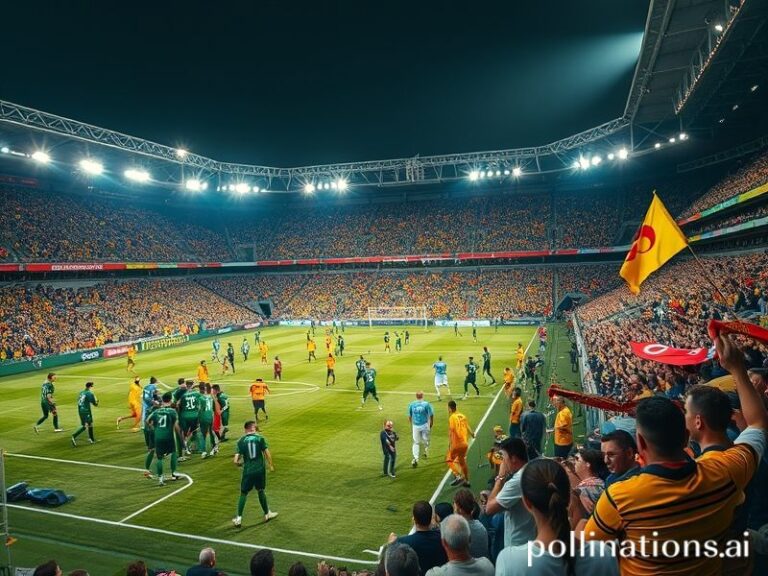Oldbury: The West Midlands Town Accidentally Trolling the Global Economy
Oldbury: The Town That Accidentally Became a Global Metaphor
By Dave’s Foreign Correspondent-at-Large (currently self-medicating with vending-machine coffee)
Oldbury—population 25,000, two Greggs, and a suspiciously large number of seagulls who look like they’ve read Nietzsche—sits eight miles west of Birmingham, England, a place the UN once described as “aggressively beige.” To the casual eye it is a post-industrial shrug: brick terraces the color of weak tea, a canal that doubles as a fly-tipping gallery, and a high street whose chief export is payday-loan shops. Yet this modest West Midlands waypoint has, over the last twelve months, become the planet’s most unlikely geopolitical barometer. How? The same way everything now happens: by accident, on the internet, and far too quickly for anyone sensible to stop it.
The trigger was a 43-second TikTok posted last March by a bored sixth-former called Jayden (handle @jaydensmumleft). He filmed himself outside Oldbury’s Tesco Express at 2:13 a.m., narrating the scene in the tone of a wildlife documentarian discovering a new species of depressed pigeon. “Behold,” he whispered, “the last place on Earth where you can still buy a microwave lasagna and a prepaid SIM card using a library card and pure spite.” The clip exploded. Within 48 hours, #Oldbury was trending in 147 countries. Korean mukbangers livestreamed themselves eating Branston pickle straight from the jar; Brazilian funk artists sampled Jayden’s “microwave lasagna” line into a track that briefly eclipsed Taylor Swift on the São Paulo charts; the EU parliament opened a session with a solemn minute of silence “for the high street’s existential condition.”
Suddenly Oldbury mattered—not because it had done anything, but because the world recognized itself in its half-lit windows. Here was everywhere’s future: a place where wages froze in 2008, optimism outsourced itself to Dubai, and the local council’s regeneration plan hinged on a mural of a hedgehog wearing sunglasses. Analysts at the OECD began citing “Oldburyization” as the terminal stage of late-stage capitalism: the moment a town stops aspiring to be a city and settles for being a punchline with parking.
Overnight, SoftBank dispatched scouts to measure 5G latency near the Spoons; the World Bank flew in consultants to price the air above the derelict Albright & Wilson chemical works (answer: £3.50 and a scratch card); and China’s Belt & Road Initiative offered to twin Oldbury with a ghost city outside Ürümqi on the grounds that “emptiness is a universal language.” Even the IMF parachuted in, solemnly declaring that Oldbury’s GDP per cappuccino was “within error margins of zero,” which technically counted as growth.
Meanwhile, residents responded with the weary ingenuity of people who’ve long since accepted that history’s practical joke has no punchline. The butcher started accepting Dogecoin; the nail salon offered NFT manicures (your nails exist, the art doesn’t); and the Methodist church rebranded its Tuesday soup kitchen as a “pop-up degrowth symposium” with optional sourdough. When CNN turned up, locals charged them twenty quid for B-roll of the precinct pigeons staging what was either a mating ritual or a turf war—hard to tell with birds that look like they’ve been through austerity twice.
The moral? In an era when nations weaponize nostalgia and billionaires monetize loneliness, Oldbury is the rare place honest enough to admit the game is over. It doesn’t offer solutions; it offers fluorescent lighting and the quiet dignity of knowing the queue at Greggs will outlast civilization. If Cop28 wants a mascot for managed decline, they could do worse than slap Oldbury on the cover: a town so authentically broken it feels… refreshing. Like finding a pub that still waters the beer.
Global leaders, take note: you can keep your summits, your pledges, your net-zero slideshows. The future isn’t Dubai’s glass phalluses or Singapore’s smart lampposts. It’s a place where the night bus smells of chips and despair, where the library’s closed but the vape shop’s open 24/7, and where the only thing rising faster than sea levels is the price of a sausage roll. Oldbury isn’t the end of the world—it’s just the part of the world that got there first, armed with nothing but sarcasm and contactless payment. The rest of us are merely en route, ETA unknown, Wi-Fi patchy.
Welcome to the Oldbury Century. Mind the pigeons; they know your PIN.







